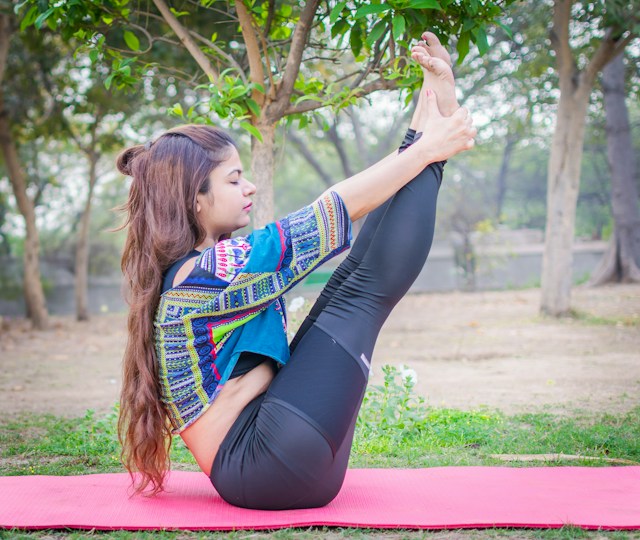How does regular physical activity impact longevity?

Physical activity is indisputably a significant constituent of a healthy lifestyle. Still, many of you may wonder, beyond enhancing your physique and fortifying your current health status, does it also influence your longevity? In recent years, numerous studies have sought to unravel this intriguing query. This article, therefore, aims to shed light on how regular physical activity can potentially extend your lifespan.
Physical Activity and Longevity: An Overview
We begin this exploration by laying down the foundations – understanding the correlation between physical activity and longevity. Health agencies worldwide have recognized the profound impact of exercise on individuals’ life expectancy. Regular physical activity has been linked to an array of health benefits, such as reducing the risk of chronic diseases, improving psychological health, and enhancing overall quality of life.
In the same genre : Does Volunteering Increase Life Satisfaction?
According to a study published in PubMed, people who engage in regular physical activity tend to have lower mortality rates compared to those with sedentary lifestyles. In fact, the study suggests that physically active individuals can add years to their lives. The World Health Organization (WHO) recommends a minimum of 150 minutes of moderate-intensity or 75 minutes of vigorous-intensity activity per week to reap these longevity benefits.
The Impact of Physical Activity on Health
Undeniably, engaging in regular exercise provides a multitude of health benefits. Multiple studies have shown that physical activity plays a crucial role in preventing various health conditions, including heart disease, diabetes, and certain types of cancer.
Topic to read : Transform your lips naturally with lip fillers in london
In addition, physical activity helps maintain healthy body weight and bone density, enhance muscle strength, and improve balance and coordination. Regular exercise also aids in managing and improving mental health, reducing the risk of depression and cognitive decline, particularly in older age.
A PubMed study found that physically active people have a 40% lower risk of developing cardiovascular diseases compared to inactive individuals. Another study discovered that regular exercise reduces the risk of type 2 diabetes by 26%. Moreover, cancer-related mortality rates were found to be 20% lower in individuals who incorporate regular physical activity into their life.
Connective Factors: Age, Activity Levels, and Longevity
Age, activity levels, and longevity are interlinked in a fascinating manner. As you age, maintaining an active lifestyle becomes increasingly important for your health and life expectancy. Studies indicate that people who remain physically active into their older years may have a significantly lower risk of mortality compared to those who lead sedentary lifestyles.
A comprehensive study published in PubMed found that even individuals who started exercising later in life could still significantly reduce their risk of mortality. In this study, individuals who became physically active in midlife had a 35% lower risk of mortality, suggesting that it’s never too late to start reaping the longevity benefits of physical activity.
Beneficial Exercise Types and Time
While any form of physical activity is better than none, certain types of exercise may offer more benefits in terms of longevity. Aerobic exercises, strength training, and flexibility exercises all play vital roles in maintaining health and extending life expectancy.
Aerobic exercises, such as running, swimming, or cycling, improve cardiovascular health and endurance. Strength training helps maintain muscle mass and function, crucial factors as individuals age. Flexibility exercises, like yoga and Pilates, improve balance and coordination, reducing the risk of falls and injuries in older people.
Concerning the time spent on exercise, the WHO recommends 150 to 300 minutes of moderate-intensity aerobic physical activity or 75 to 150 minutes of vigorous-intensity activity throughout the week for substantial health benefits.
The Role of Physical Activity in Disease Prevention and Risk Reduction
Physical activity has a prominent role in disease prevention and risk reduction. Regular physical activity can help prevent or manage various chronic conditions, including heart disease, diabetes, and certain types of cancer, thereby reducing the risk of premature death.
By improving cardiovascular health, regular exercise can prevent heart disease, one of the leading causes of death worldwide. Physical activity also helps control blood glucose levels, reducing the risk of type 2 diabetes. Furthermore, regular exercise is associated with a lower risk of certain types of cancer, including breast and colon cancer.
In terms of risk reduction, one study found that physically active individuals had a 30% lower risk of premature death compared to inactive individuals. Another study published in PubMed noted a 39% reduced risk of stroke in individuals who were highly active.
In essence, regular physical activity remains a powerful tool in enhancing your overall health and extending your lifespan. It offers a myriad of benefits, from disease prevention to improved mental health, and serves as a protective shield against premature mortality. The key is consistency and finding activities that you enjoy, making physical activity a lifelong habit rather than a fleeting resolution.
Impact of Physical Activity on Brain Health and Mental Wellbeing
In addition to the physical benefits, regular physical activity significantly impacts brain health and mental wellbeing. Exercise has been linked to improved cognitive function, better mood, and reduced risk of mental health disorders.
According to a study published in PubMed, regular physical activity can reduce the risk of developing Alzheimer’s disease by as much as 50%. Moreover, people who exercise regularly have been found to have better memory and thinking skills. This is because physical activity increases blood flow to the brain, thereby improving its function and promoting the growth of new neurons.
Exercise also has a positive impact on mental health. Regular physical activity has been shown to reduce symptoms of depression and anxiety. It does so by stimulating the production of endorphins, commonly known as the body’s "feel-good" hormones. Physical activity can also improve sleep quality, which is crucial for mental health.
Based on these findings, incorporating regular physical activity into your routine not only helps maintain your physical health but also enhances your brain health and mental wellness.
Adherence to Physical Activity Guidelines and Longevity
Many people fail to adhere to the physical activity guidelines set by health organizations like the World Health Organization. However, evidence strongly suggests that following these guidelines can significantly extend one’s life expectancy.
A study conducted in San Diego found that individuals who met the WHO’s physical activity guidelines of 150 to 300 minutes of moderate-intensity or 75 to 150 minutes of vigorous-intensity activity per week had a significantly lower risk of all-cause mortality. This study reaffirms the importance of adhering to these activity levels to reap the longevity benefits.
In the context of public health, promoting adherence to physical activity guidelines should be a top priority. This can be achieved through public health campaigns that emphasize the importance of regular physical activity and provide practical strategies to incorporate exercise into everyday life.
Conclusion
In conclusion, regular physical activity unquestionably influences longevity. It does so by reducing risk factors for chronic diseases like heart disease, diabetes, and certain types of cancer, and enhancing overall health wellness. Physical activity also plays a crucial role in maintaining brain health, reducing mental health disorders, and improving mental wellbeing.
Moreover, the interconnectedness of age, activity levels, and longevity signifies the importance of maintaining an active lifestyle as we age. Adherence to physical activity guidelines is key to extending life expectancy.
Therefore, whether it’s going for a brisk walk, cycling, strength training, or practicing yoga, incorporating regular physical activity into your routine can significantly enhance your life expectancy. It’s never too late to start, and every minute of physical activity counts towards a healthier, longer life.
Remember, the journey to a longer, healthier life begins with a single step. So take that step today, and make physical activity a lifelong habit. Your future self will thank you.
